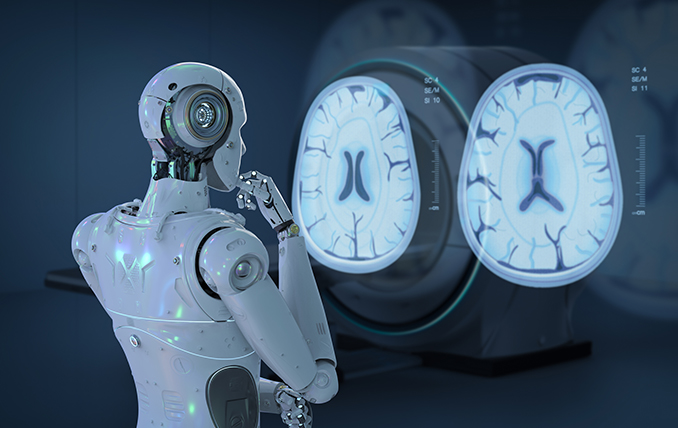
AI Revolutionizes Medical Diagnostics with Precision ImagingAI Revolutionizes Medical Diagnostics with Precision Imaging Artificial intelligence (AI) is transforming the healthcare industry, and medical diagnostics is at the forefront of this revolution. AI-powered imaging technologies are empowering clinicians to detect and diagnose diseases with unprecedented accuracy, speed, and efficiency. Improved Disease Detection AI algorithms can analyze vast amounts of medical images, such as X-rays, CT scans, and MRIs, to identify subtle patterns and anomalies that may be missed by the human eye. This enhanced detection capabilities allow for earlier and more accurate diagnosis of conditions like cancer, heart disease, and neurodegenerative disorders. Precision Characterization AI algorithms can not only detect diseases but also characterize their severity, stage, and prognosis. By quantifying tumor size and shape, for example, AI can assist pathologists in determining the appropriate treatment plan for cancer patients. Automated Image Analysis AI-powered systems can automate the process of image analysis, freeing up clinicians’ time for patient care. This automation reduces the risk of human error and ensures consistent and objective interpretation of images. Faster Diagnosis AI algorithms can analyze medical images in real-time, significantly reducing the time it takes to make a diagnosis. This faster diagnosis enables timely treatment, improving patient outcomes. Personalized Medicine AI can also be used to develop personalized medicine approaches by analyzing individual patient data, including medical history, genetics, and lifestyle factors. This enables clinicians to tailor treatments to each patient’s specific needs. Examples of AI-Powered Imaging Technologies * Deep learning algorithms: Used to analyze medical images and identify subtle patterns that indicate disease. * Computer-aided detection (CAD): Assists radiologists in detecting and characterizing lesions, such as breast cancer tumors. * Quantitative imaging biomarkers: AI algorithms can extract quantitative information from medical images to assess disease severity and response to treatment. Conclusion AI is revolutionizing medical diagnostics by providing precision imaging technologies that enhance disease detection, characterization, and diagnosis. These advancements are improving patient outcomes, reducing healthcare costs, and paving the way for personalized medicine. As AI continues to evolve, its impact on medical diagnostics will only continue to grow, leading to further advancements in healthcare and a healthier future for all.
Posted inNews